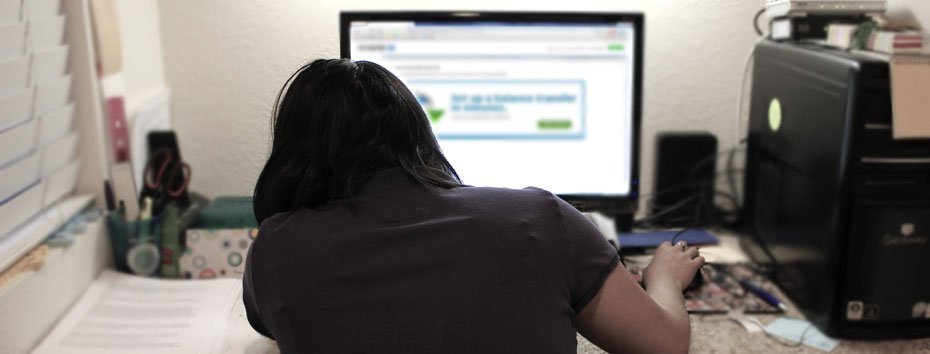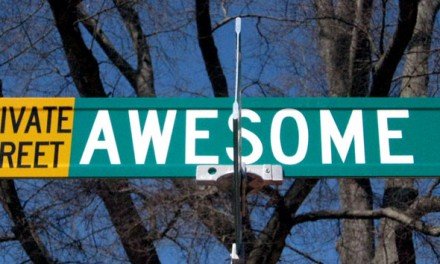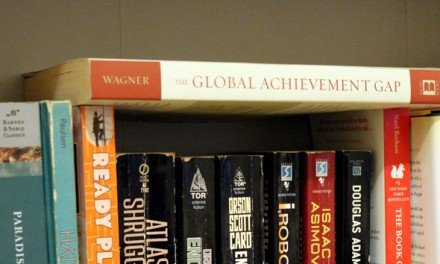It’s frustrating, isn’t it? Life often seems like a never-ending chore to get things done.
There are things that you have to do, like pay your rent. There are things that you should do, like vacuum or eat healthy. And there are things you want to do, like learn to play guitar or write a novel. And most days, it’s a struggle to finish the ‘have-tos’, let alone the ‘shoulds’ or the ‘wants’.
Sometimes you can blame an overcrowded schedule, but other times you have a light day and you find yourself dragging your feet. People talk about issues with motivation or time, but I think it’s bigger than that. I think that the biggest reason why it’s hard to get things done is that society has taught you bad habits.
Society Teaches Us To Consume, Not Create
If you look around your house, how many electronic devices are for consuming, and how many are for creating? How much have you spent on devices that are for entertainment versus ones that help you accomplish a goal/task? In the kitchen, there are generally productive appliances: the stove and the oven are tools that let you create your meals. In the living room, there are non-productive electronics: the TV and stereo are the biggest consumption culprits here. Which ones do you spend more time using?
Everywhere we go, we see and hear advertisements telling us what to buy. We are told what the next best thing is, and why we should get it now so we don’t miss out. Can you think of a commercial that told you to go and make something of your life? I can’t. Can you think of one that convinced you to buy something you didn’t need? Yep, there are lots of those!
We are constantly bombarded with a message of consumption. The dream of retirement even contributes to this mindset. It’s a nice idea to save up your money so that one day, you can be free to spend more time traveling or visiting grandkids. But a side effect of holding up this ideal is that it over-glorifies leisure, telling us that the work we are doing is not as important as the things we want to spend our money on. As a result, we constantly lament our lack of free time, because there are so many things we want to consume (movies, TV shows, and other time sinks).
Whether we realize it or not, we’ve picked up this habit of constant consumption. Is it any wonder, then, why it feels like even the smallest task is a huge chore? That there’s so much inertia to be overcome before getting things done? We’ve forgotten how to create because we’re too busy consuming.
The good news is that like any habit, this one can be broken. The more often and the more regularly you create things, the easier it will become. Try replacing some consumption time with creative time where you write a short story, knock out your list of chores, or finally start drawing up plans for your new invention.
Society Teaches Us To Avoid Struggle

A struggle can bring beautiful results.
Here in America, our culture has adopted the notion that struggling with a problem is a bad thing. Our school system implies that if you don’t know the answer off the top of your head, you are less intelligent. We are taught that you shouldn’t have to figure it out, you should just know. This is evident in the way we approach the classroom, and how we go out of our way to prevent our children from experiencing struggle. Our kids get moved to the next grade even if they aren’t ready for it, so that they don’t have to struggle through the tough parts of sixth or eighth grade. Helicopter parents have only reinforced this notion. But just as a butterfly must struggle to exit its cocoon, it’s the struggle that gives us strength.
Even our daily terminology reinforces this concept. When two friends part ways, one often tells the other: “Later John. Take it easy.” I don’t know about you, but I’ve never heard someone say “Bye John. Challenge yourself” or “Later John. Try something new!” It’s subconsciously ingrained in us to avoid effort, but effort is not a bad thing. And as I’m sure you know, you want to accomplish all these things, yet you ask yourself why is it so hard to get things done? It’s because we’ve learned that any sort of struggle is to be avoided.
But just as with the habit of consumption, we can re-train ourselves to seek challenges. You can start opting for a slightly higher difficulty, because you’ll never know what you are capable of until you try.
The Best Way To Get Things Done
Now that we know some of the obstacles that are holding us back, it should be easier to overcome them. All it takes is some intentionality and a little effort. That means it takes two steps to get things done: 1) Make a plan, and then 2) Go do it! Why two steps instead of just one? Because your chances of success go up when you make a plan or a goal, whether it’s something simple or complicated. It’s best to two-step!
Your plan could be as simple as, “Instead of watching TV after work today, I’m going to finish filing my taxes.” Or it could be a bigger goal such as running to lose weight, in which case you should write on your calendar how long you want to run each day. Then as each day comes, you run for that long!
The point is, it takes a shift in your mindset. Society has shaped your default mentality, but if you want to live your life in charge, it’s up to you to decide how you do things. It’s okay to shrug off old habits to make way for a new productive you.
Try to start spending more time creating instead of consuming. The more you do it, the easier it will be, and you’ll soon find that you would rather create something than consume something!
So what are you going to do now? Do you have any ideas for which things you want to get done? Good luck two-stepping your way to success!






I think you just come up with the root problem of productivity. I have tried several productivity tips and tools yet they only work within days, maximum a week. I get easily pulled back to laziness and procrastination. When I am working, yes, I like to lament on the times I’ve been working on instead of leisuring. The answer is simply in the mindset you just mentioned.
This is a great post, and agreed–far too many people forego the joy of creating, instead working to allow for more consumption.